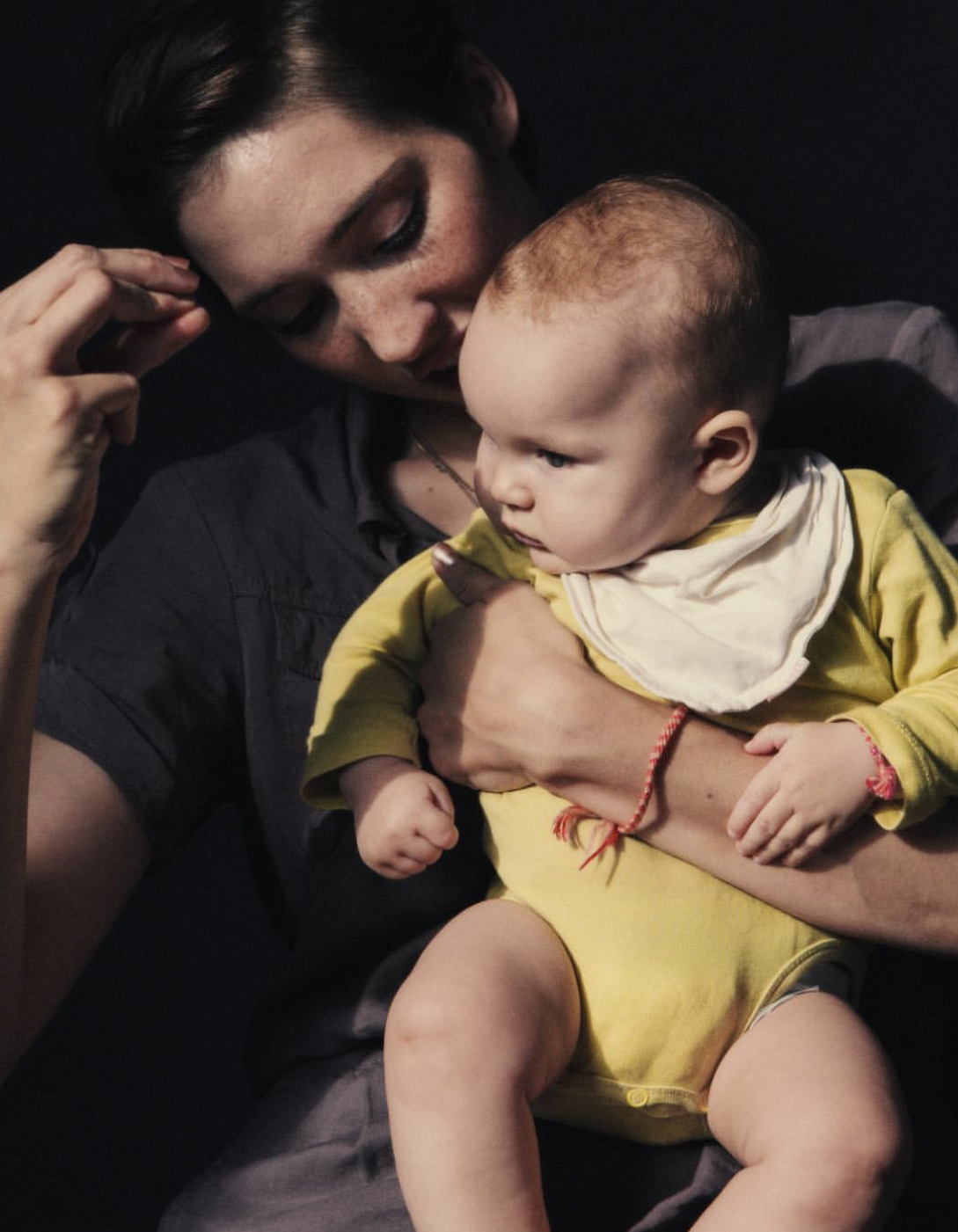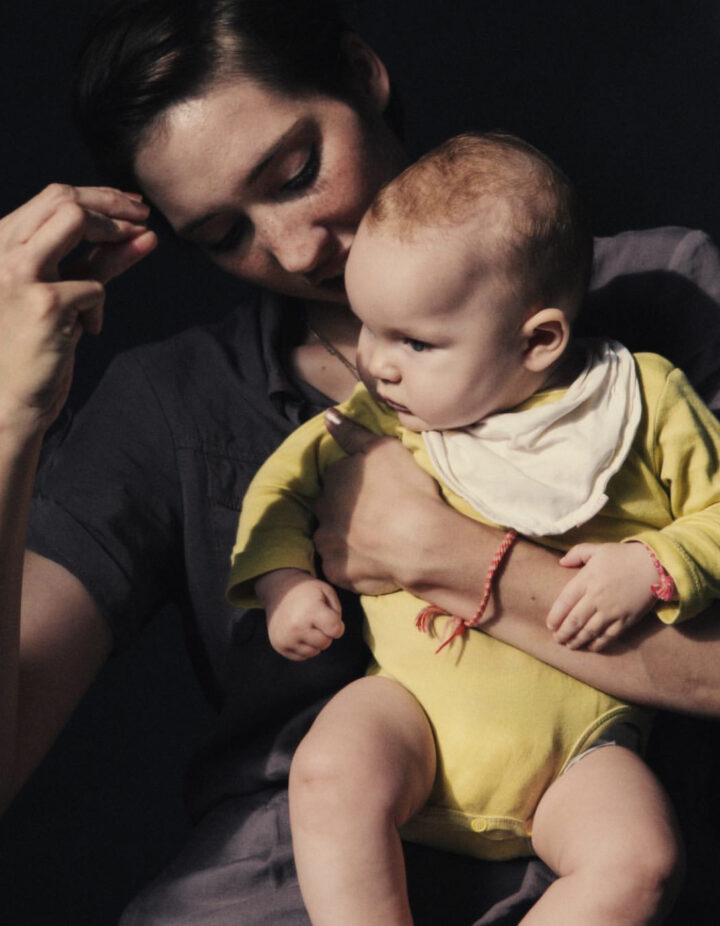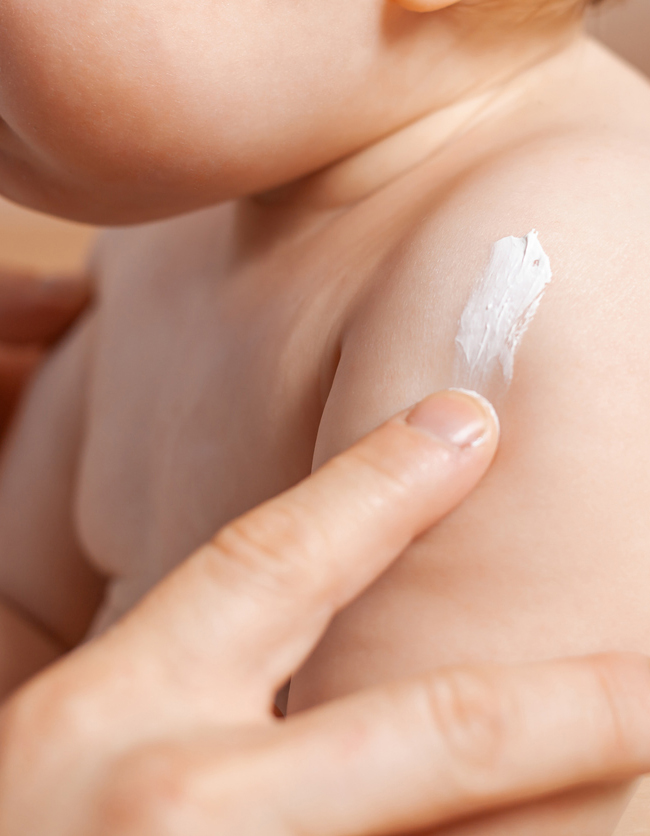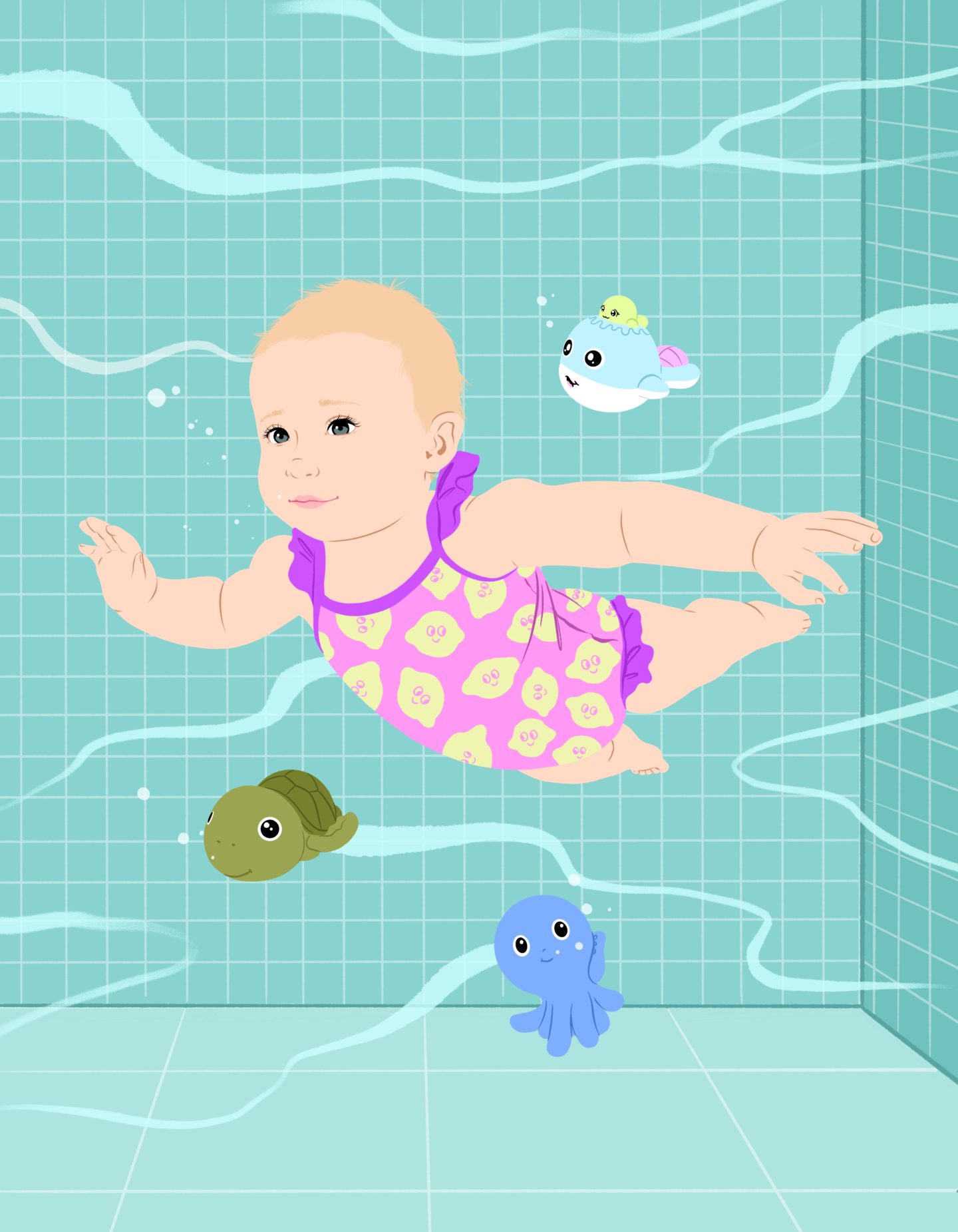Feelings. We all have them. Even and especially babies, who are learning and growing and making sense of their worlds every day. “One million neural connections per second,” in fact, is “how quickly a child’s brain is developing between birth and age three,” notes ZERO TO THREE, the non-profit committed to “ensuring all babies have access to the quality care, services, and support they need to thrive.”
So, with Mental Health Awareness Week (May 15th-May 21st) right around the corner, we’re super keyed in on the importance of fostering adaptive mental health in our babes. “A baby’s earliest relationships and experiences with their parents and other caregivers dramatically influences brain development, social-emotional, and cognitive skills, and future health and success in school and life,” reiterates ZERO TO THREE, so whether you’ve just welcomed a baby or are newly pregnant, you’re going to want to keep all of these insights in mind to start your lovey off on the right path.
We listen to a ton of parenting podcasts here at Babe, and with our psych majors in our back pocket, we have a pseudo sense for what infant mental health is all about — so we checked in with licensed clinical psychologist, mom of two, and host of the “Securely Attached,” Dr. Sarah Bren, for her thoughts.
What does “infant mental health” actually mean?
“Infant mental health is the study of a child’s social, emotional, and cognitive development during the first three years of life with the aim of promoting healthy development and identifying and preventing early signs of mental health challenges,” says Dr. Bren. “As a child, this time is critically dependent on the physical and emotional care of the primary attachment figures (usually the parents). Infant mental health is also inextricably linked to parental well-being during this time, and support for infant’s mental health typically involves supporting parents in creating a nurturing and emotionally attuned environment for their child.”
According to Dr. Bren, “factors like a child’s temperament, environment (including socioeconomic factors, and access to quality nutrition and healthcare), their parent’s mental health and stress levels, genetics and medical history, and significant separations or changes in their routines or family structures can all influence an infant’s mental health status.” But the way a parent and child are ‘attached,’ also plays a significant role in an infant’s mental health status.
Biologically, infants seek out physical and emotional closeness with their primary caregiver as a means of “increasing their chances of survival,” notes Bren. And the way a child and parent bond sets up a kind of “internalized blueprint” that the child will follow to anticipate “how others will respond to them and whether they will meet their needs.” If an infant feels cared for, especially after showing vulnerability (i.e. crying), they start building trust and reliance on their parent(s).
Alternatively, if a baby doesn’t get the attention they need, even after ‘asking’ for it (literal crying and other physical “cries for help,” because verbal communication at this age is impossible), they’ll gradually start shutting down and begin managing their expectations/making assumptions that their primary caregiver(s) are MIA and unavailable to ‘fix things’ for them.
Attachment Styles:
Ultimately, ‘secure’ attachment, as Dr. Bren describes it, is #endgame here, but that’s not to say that things can’t be turned around.
Secure attachment.
When a parent is there: The child feels safe and secure and is able to use them as a secure base from which they can comfortably go off and explore their environment, play, and interact with others.
When a parent is not there: The child is likely to show signs of distress and, upon reuniting with the parent, will tend to seek closeness, comfort, and soothing from them.
What it means: They have learned to trust that their parent will (for the most part) reliably and consistently meet their needs for soothing and comfort when they are distressed.
Insecure-Avoidant.
When a parent is not there: The child may not exhibit any observable ‘distress’ response upon separation (though, Dr. Bren tells us that certain studies have identified that these children do show elevated cortisol levels during separations, suggesting that there is distress, but that it is not outwardly expressed). And once reunited, the child may avoid their parent altogether.
What it means: The child has developed a protective strategy for self-reliance; If they don’t expect their parent to ‘show up,’ then they won’t be bothered if they’re missing or be outright evasive when they are there.
Insecure-Ambivalent.
When a parent is not there: The child might display overly-clingy or fearful behavior when separated from their parent, but then have trouble allowing their parents to soothe/comfort them when they come back. Here a child might also struggle to “reengage with their environment” or “return to play” with their playthings or peers.
What it means: The child starts demonstrating unpredictable behavior, similarly to what they’ve come to find with their parent: An inconsistency in their responsiveness. In this attachment style, a child isn’t able to predict how their parent will “show up.”
Disorganized.
When a parent is not there: The child models “strange, confusing, or contradictory behaviors upon reuniting with a caregiver after a separation or when in distress.” “This might include freezing, running away from the parent, or engaging in repetitive or unusual self-soothing behaviors,” says Bren.
What it means: The child learns to associate their parent with fear, usually because of a related traumatic experience involving their primary caregiver. Bren says that a researcher, Mary Main, described this intense fear a child may have for their caregiver as a “fright without solution” type of attachment. And this is particularly heartrending, because the baby/toddler/child has no idea where to turn for support or safety.
Again, Dr. Bren tells us that a number of things (genetics, family history, socio-economic circumstances, etc.) can impact infant mental health, but the above attachment relationships do set a precedent.
Warning Signs of Distress
“It’s difficult to account for the nuance and variability in young children’s development and behaviors,” reminds Bren. But, if you have any concerns about your baby’s behavior as of late, especially if any of the below symptomatology is involved, you’ll want to consult your pediatrician or address the issues at your regularly scheduled well visits (provided they’re not too far out).
- Sudden changes in behavior or mood
- Difficulty regulating emotions and behaviors to the degree that it is interfering with their day-to-day life in a meaningful way
- Delayed developmental milestones (again, keeping in mind that there is a lot of variability in milestone acquisition)
- Changes in sleep or appetite
- Challenges with social interaction across multiple domains
In the same vein of “if you see something, say something:” If your baby starts showing some of these signs, you’ll want to reach the right resources next.
With early identification and intervention, Dr. Bren says that families can do a lot to improve and support their infant/child’s mental health. But, as we say a whole lot, it takes a village.
Put the oxygen mask on yourself first. You’ve heard that a lot, right? Well, it makes total sense, because as parents, we can’t raise well-adjusted and emotionally resilient babes if we’re not on our A-game ourselves. Bottom line: Whether it comes from friends, family, a community support system or personalized therapy, getting help for your well-being is paramount. Your baby’s mental health depends on it.
Commit to learning more about your baby’s inner workings. It may not look like there’s a whole lot happening inside your little squish, but it’s bananas what’s actually flitting around in their brains. Learning some fundamentals about child development and attachment science can “greatly increase your ability to foster a nurturing and supportive environment that provides emotional safety and security,” assures Bren. Moreover, if you can tailor your responses to be at your child’s level, you’ll also likely be improving your parent-child relationship.
Enlist professional help. Parenting is a beast to begin with, but when the mental health of our kiddos is in question, it’s okay (and absolutely encouraged) to ask for help. You never have to navigate this alone. To this end, Dr. Bren encourages every parent who might be worried about their young child’s mental health to “get a diagnostic evaluation from a mental health professional who specializes in infant mental health.” These assessments are critical as they inform treatment planning.
Take Advantage of the Plasticity In Their First Three Years
Mental health issues in infancy and toddlerhood can make a child more vulnerable to challenges with mental health later in life, but Dr. Bren says that’s why early intervention and proactive/independent learning [about early childhood development] are so beneficial. “These early years are a time of significant brain plasticity, and helping a child’s parents to improve their ability to support healthy child development and mental health early on can greatly reduce a child’s vulnerability for mental health challenges later in life.”
Our hot take: The ball’s in your court, mama.
Dr. Sarah Bren is a licensed clinical psychologist and mom of two, whose passion is helping parents find their inner confidence and raise healthy, resilient kids. Dr. Sarah is the host of the podcast Securely Attached, and the creator of the parenting courses The Authentic Parent: Finding Your Confidence in Parenthood and The Science of Tantrums. She is the co-founder of Upshur Bren Psychology Group in Pelham, NY where she treats parents, children, and families.




